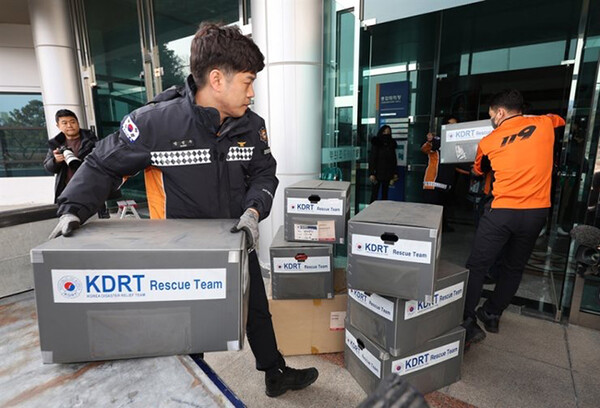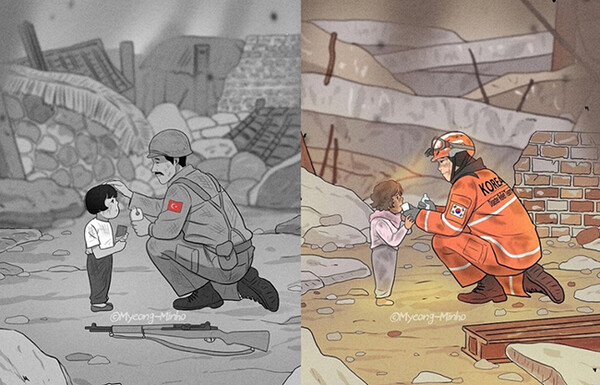Turkish and Syrian Students Comment on the Lack of Support of JNU after Türkiye’s Earthquakes
![▲ The KDRT team rescued eight survivors and nineteen bodies during their stay in Türkiye.[Photo by Kim Nak-Jung]](https://cdn.news.jejunu.ac.kr/news/photo/202304/116622_20777_3346.jpg)

“Life always has its way of reminding us how small and powerless we can be” – a Turkish PhD student told the staff of The Islander when questioned about the earthquakes that hit his country this past February. These natural disasters have had devastating consequences, causing the death of around 57,300 people (more than 50 thousand in Türkiye and more than 7 thousand in Syria) and leaving 1.5 million people homeless so far. Considered the fifth deathliest earthquake in the 21st century, and the one with most casualties in the modern history of Türkiye.
The Korean government was one of the first to send rescue personnel – 118 members of the Korea Disaster Relief Team (KDRT) – with a second medical team medical and rescue team stated to be going soon. However, in contrast to the active effort of the government, the same cannot be said in regards to the effort that JNU has done for the Turkish and Syrian students living here. Another Turkish student currently doing their master’s degree told us that “it is a shame that our school did not do an official fundraiser or a food drive,” adding that “my friends shared some ways of donating money through social media, but it would have been nice if the community in our university united for this vulnerable moment for our country.”
In Jeju Island, civil groups and charity organizations organized fundraising campaigns: the Seogwipo Central Church and the Tuscany Hotel and Siena Resort each donated 100 million won to the victims while the Jeju Energy Corporation donated 2 million through the Korean Red Cross. Furthermore, the Jeju Development Corporation, the Jeju Federation of the Korean Art, and the Seogwipo City Volunteer Center all had different fundraising campaigns.
If our university has a community of students with a direct connection to the place these tragedies took place, then why were they ignored? A student from Syria told our staff that “members of my family are currently living in tents because our houses were all destroyed,” adding that he feels terrible because there is no way he can directly help his family. And while the JNU Student Counseling Center does offer sessions in English, that covers the extent in which our university can offer help t othese students.
The three students interviewed by our staff agreed that this is another demonstration that JNU only cares for the foreign community in the school on a surface level, and that “there is still a long way to go if we want to be properly integrated in the community.” Yet, they are very grateful for the help they have received from other civil associations and their own groups of friends, stating that “the support we have received from Korean people has been heartwarming,” with the Turkish students highlighting the strong friendship that Korea and Türkiye have ever since Turkish troops helped South Korea during the Korean war.
The concluding message they want to deliver is that “life is too short, and we really do not have any certainty we, or any of our loved ones are going to be alive the next day.”


